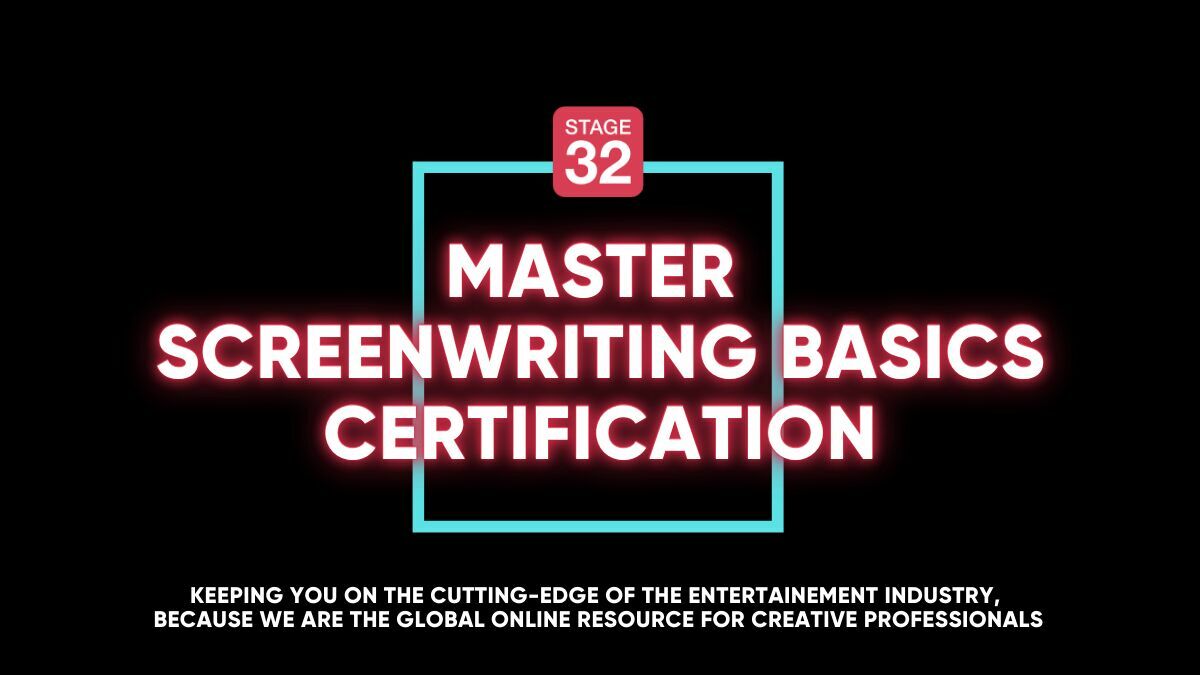Hey all. As I polish up my screenplay, I'm torn by something: I was told I should SHOW any actions/images instead of TELLING in my script. Example: TELL: Judy pulled into the theatre parking lot where she would be performing in a play that night. SHOW: Judy pulled into the theatre parking lot and parked in front of a sign that read "Tonight! A Cool Play, Starring Judy Doe." While I understand why we need to SHOW, I've read dozens of scripts that TELL and so I'm confused by this. Thoughts?



Where are you seeing these scripts that use TELL in the action lines? Screenplays are written for the screen so must be written visually. Your TELL example contains an unfilmable which doesn't belong in a script. "Judy pulled into the theatre parking lot" is the only part of that action that is visual, the rest of that line needs to be removed because it can't be filmed. If you're seeing those TELLS in spec scripts, then that's self explanatory.
I understand the concept and the purpose of TELL vs SHOW. What can't be seen, can't be filmed. My question is why TELL shows up in some scripts? (And I'm afraid I don't understand your last sentence. How is TELL self-explanatory in a spec script? )
2 people like this
Sorry Joleene, the reason why I said it was self explanatory is because spec scripts are written by writers at so many different stages of their writing career and in most cases, they're still learning how to write a script, so they'll get a lot of things wrong. That's why I asked where are you seeing these scripts.
That's what I thought you meant. Still a bit green. :) Thanks, Pierre. I've seen it in a few indie scripts, yes.
1 person likes this
Thanks Patricia. I'm clear on the difference. :) I was just asking why I sometimes see TELL in some scripts. As Pierre said, it is usually a newbie writer move.
1 person likes this
Understandable, I see it a lot in Indie scripts as well. If you're the writer/director, you can pretty much write it any way you like but I don't know that it really serves them all that well. I've provided notes for some indie scripts and I would include comments about unfilmables and the writers have bluntly replied with the comment that they are producing and directing this film so it doesn't matter. I maintain that "cast and crew are used to a certain format and if they don't understand what you're writing then this project is going to run into problems". I was even told by one person that it was his job to simply get the story out there in any format they wanted and everyone else had to work out what was going on. needless to say I haven't seen their name anywhere since. My advice Joleene? Write the best story you can and don't take formatting cues from the indie market.
1 person likes this
EXT. THEATRE - PARKING LOT - DAY Judy pulls up beside a sign that reads: "Tonight! A Cool Play, Starring Judy Doe." She gets out of her car, slams the door shut and hurries into the theatre. INT. THEATRE - DAY Judy ankles in. A dozen PEOPLE with long faces stare at her. Judy grins. JUDY Sorry I'm late./Wow! Am I the only one who got stuck in traffic./I er -- CO-ORDINATOR Get your ass over here, Judy! I think this might help.
3 people like this
"Show versus Tell" changes passive writing into active writing, and weak writing into more convincing writing. Active writing is more fluid, direct, visual, dramatic and evocative. Passive writing is more indirect, flat and languid. We learned that in beginner writing classes in college. One of my profs used to correct our short stories by striking through lines and writing in big red letters "SHOW!" in the margins of such crimes. It was heinous, I tell you - heinous. I hate the color red to this day! Example "It was raining hard outside" VERSUS "rain drops bombarded the bedroom window." "The getaway car sped away" VERSUS "tires burned rubber as the car rocketed away." So you're SHOWING, instead of TELLING. As Chekov said, "don't tell me the moon is shining - show me the glint of light on the glass." I think it's important to really hone in on every single action line to make sure they're as active as possible. Any visual should be conveyed as actively and as concretely as possible. The same goes for narration, exposition, and statements of fact. The SUBJECT performs the action, and if it doesn't, it's considered passive. Example "Action on the matter will be decided by the President" VERSUS "The President will decide action on the matter." Does everyone do this as much as possible? No. Should everyone? Yes.
2 people like this
This is why Pulp Fiction sucked so bad.
1 person likes this
@CJ Walley - Really! Now I have to find the script and read it!
1 person likes this
Joleen, check out the bit where Vincent and Jules visit Marcellus Wallace's club and Paul's backstory and role is described in remarkable detail.
1 person likes this
Pulp Fiction script link, from a previous post by Regina Lee. http://www.pages.drexel.edu/~ina22/splaylib/Screenplay-Pulp_Fiction.pdf
4 people like this
It's all about making it clear on the page... and making sure the meaning from the page makes it all the way to the screen. The term I swiped from Ted Elliott was demonstrate (instead of show) because you can demonstrate through dialogue as well as actions or images. They key is to make sure what you write gets all the way through to the audience in the cinemas. And you can probably find cases where pros failed to do that... and sometimes those things are never caught and make for confusing films. I have a Script Tip in rotation on my website about some movie where some guy that we thought was a generic henchman was actually the guy who killed the protag's mother. So the big fight at the end with the generic henchman is emotional and involving on the page, but when we remove the info that this is the killer of the protag's mom (info that never made it off the page because no one ever said it or showed it), it's kind of a bland fight where you spend the whole time wondering "what's the big deal?"
1 person likes this
Thank you, William. Everyone, really.
1 person likes this
As long as you can convey description with proper screenplay format and awesome dialogue you will be fine. These so called screenplay writers with all their rules are often wrong.